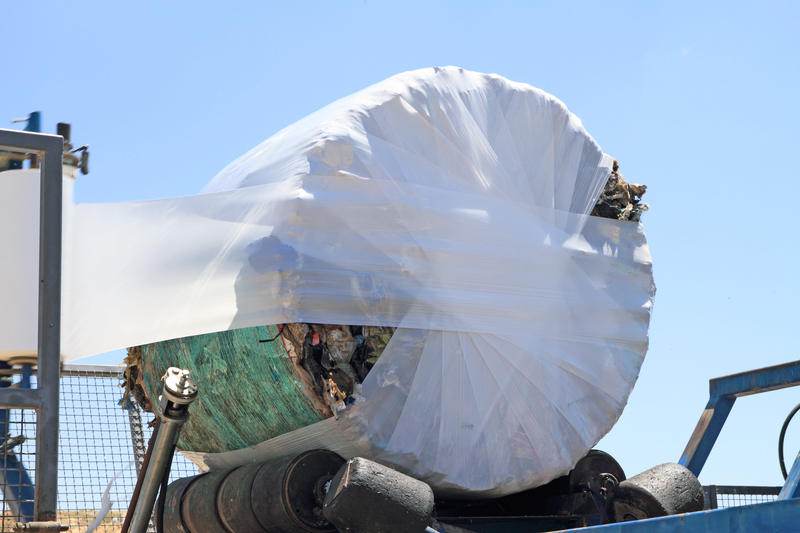Why Responsible PPE Waste Disposal Matters More Than Ever
Since the start of the COVID-19 pandemic, the world has witnessed an unprecedented surge in the use of Personal Protective Equipment (PPE). Whether in healthcare, industry, or daily life, items like masks, gloves, gowns, and face shields have become essentials. As crucial as PPE is to safeguarding human health, its improper disposal now presents a mounting environmental and human hazard. In this article, we will explore why responsible PPE waste disposal is crucial, the risks associated with negligence, and the steps each of us can take to ensure a safer, cleaner planet.

The Rise of PPE Usage: A Double-Edged Sword
Before 2020, disposable PPE was primarily used in medical and occupational settings. The pandemic era, however, marked a seismic shift, with billions across the globe donning masks, gloves, and even single-use suits daily. This massive consumption has had unintended, yet severe, side effects:
- Millions of tons of PPE waste generated globally every month.
- Overflowing landfills and littered public spaces.
- Increased risk of disease transmission from improperly handled contaminated PPE.
- Pervasive environmental pollution, including waterway contamination and threats to wildlife.
As we progress, it's clear that safe PPE disposal is not just a medical protocol--it's an urgent environmental imperative. But why does it matter more now than ever before?
Environmental Impact of PPE Waste
PPE in the Marine and Terrestrial Ecosystems
A significant portion of used PPE winds up outside proper waste channels. Lightweight masks and gloves are easily carried by wind and water, finding their way into rivers, lakes, and oceans. Marine researchers have found alarming increases in PPE debris on coastlines worldwide. This has several repercussions:
- Threats to wildlife: Animals mistake PPE for food or become entangled, leading to injury or death.
- Microplastic pollution: PPE items are largely made from plastics that break down into microplastics, contaminating food chains and water supplies.
- Soil contamination: Leaching chemicals from degraded PPE pollute soil, affecting crops and terrestrial organisms.
The Longevity of Disposable PPE
Most single-use PPE is crafted from polypropylene and other non-biodegradable plastics. These materials can persist in the environment for hundreds of years, compounding the pollution problem with every mask or glove tossed carelessly. Responsible PPE waste management is thus vital to limit the accumulation of toxic, long-lasting litter on our planet.
Health Risks: Beyond COVID-19
Improper PPE waste disposal extends danger beyond the coronavirus itself. Here's how:
- Biohazard contamination: Used masks and gloves may carry bacteria, viruses, and other pathogens. Those who encounter discarded PPE risk secondary infections.
- Healthcare worker exposure: Improper recycling or handling in medical settings increases the risk to those managing waste streams.
- Community transmission: Littered PPE in public places can facilitate the spread of not only COVID-19, but also flu, hepatitis, and even antibiotic-resistant bacteria.
The chain of infection does not end with the wearer--it extends to anyone exposed to contaminated disposables through negligent disposal.
Challenges in PPE Waste Management
Lack of Infrastructure
Many regions, especially in developing countries, lack the infrastructure to process the sudden spike in PPE waste. Even in developed nations, existing waste management services face considerable pressures.
- Overflow of bins in public spaces and hospitals.
- Hazardous waste capacity often exceeded, leading to unsafe stockpiling.
- Lack of dedicated PPE disposal protocols in non-medical settings.
Public Awareness and Behavior
Despite guidelines, many individuals are unaware of how or where to discard PPE safely. Studies show that significant proportions of masks and gloves are disposed of in general trash, on sidewalks, or in natural areas. Combating this begins with education and systemic support.
Best Practices for Responsible PPE Waste Disposal
Adopting safe, responsible PPE waste practices is essential for individuals, organizations, and governments alike. Below are actionable recommendations:
For Individuals:
- Always place used PPE in designated bins.
- If no bin is available, store PPE in a sealed bag until proper disposal is possible.
- Never flush masks or gloves down toilets or sinks--this can clog systems and contaminate water.
- Do not recycle disposable PPE with mainstream recyclables; it's generally not recyclable and risks contamination.
- Follow local guidelines regarding PPE disposal, which may include double-bagging or separation.
For Businesses and Healthcare Facilities:
- Install clearly marked, secure PPE disposal bins at entrances and exits.
- Train staff in safe handling and disposal techniques.
- Work with certified medical waste contractors for collection and treatment.
- Regularly inspect and empty disposal bins to avoid overflow and environmental exposure.
For Municipalities and Policy Makers:
- Deploy additional collection points, especially in public spaces and transportation hubs.
- Launch public service campaigns for responsible PPE waste disposal awareness.
- Fund research into biodegradable PPE alternatives and innovative recycling technologies.
- Enforce penalties for littering PPE in public areas.
Emerging Solutions: The Role of Innovation
In response to the global PPE waste crisis, new initiatives are gaining traction:
- Biodegradable PPE: Scientists are developing masks and gloves from plant-based or compostable materials, significantly reducing environmental persistence.
- PPE recycling programs: Specialized facilities can process uncontaminated PPE into raw materials for new products.
- Waste-to-energy technologies: Properly incinerated PPE can produce energy, though emission controls are essential.
- Upcycling: Creative projects transform PPE waste into community art, road surfacing materials, or insulation.
Supporting these innovations through government funding, private investment, and consumer demand can accelerate the shift toward sustainable PPE management and waste disposal.
The Legal and Regulatory Landscape
International Guidelines
Organizations such as the World Health Organization (WHO) and the Centers for Disease Control and Prevention (CDC) offer waste management protocols for handling infectious and potentially infectious PPE. Compliance is crucial to protect workers and communities.
Differing National Responses
Some countries have rapidly enacted laws and regulations for PPE waste disposal. In the UK, for example, "offensive waste" bins are used in many public spaces. Several U.S. states have issued mandates for PPE separation in commercial facilities. However, enforcement and infrastructure lag behind the scale of the challenge in many regions.
The Social and Economic Consequences of Negligence
Beyond environmental and health risks, careless PPE waste management presents social and economic threats:
- Tourism and recreation: Littered landscapes and beaches deter visitors and can harm local economies reliant on clean environments.
- Increased municipal costs: Cities spend millions more on litter collection and public health interventions.
- Brand reputation risk: Businesses and governments perceived as irresponsible with waste may face public backlash or decreased commercial trust.
The Power of Individual Action
The global PPE waste crisis may seem overwhelming, but small, consistent actions by individuals can significantly mitigate the problem. Here's how you can help:
- Carry a sealable bag for used PPE when on the go.
- Educate friends and family about responsible disposal habits.
- Advocate for better disposal facilities in your workplace, school, and community.
- Support brands and policies prioritizing sustainable PPE solutions.

Looking Ahead: Building a Sustainable Future
Responsible PPE waste disposal is far more than a fleeting concern born of global health emergencies. It is a test of our readiness to address the intersection of public health, environmental protection, and social responsibility. We must rethink our relationship with single-use plastics, invest in new disposal technologies, and above all, make responsible habits a universal norm.
By acting now, deploying wide-reaching education and infrastructure, and fostering innovation, we can ensure that the protective gear designed to save lives does not go on to harm the very world we aim to protect.
Conclusion: Why PPE Waste Accountability Matters More Than Ever
In today's interconnected and environmentally fragile world, PPE waste accountability stands as a critical challenge for individuals, communities, and governments. The surge in demand for protective gear has given rise to a new wave of pollution, ecosystem threats, and public health risks.
By strengthening disposal practices, investing in biodegradable alternatives, and promoting education, we can turn the tide. Let's take every opportunity, in hospitals, businesses, and our daily lives, to ensure safe, responsible PPE waste disposal--for the health of both people and the planet.
- Every piece of PPE disposed of properly is a step toward a cleaner, safer world.
- Responsible choices today shape the future environment for generations to come.
Let's make responsible PPE waste disposal a priority--now more than ever.
